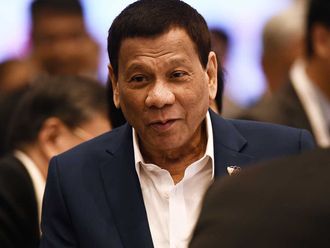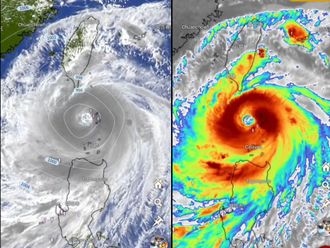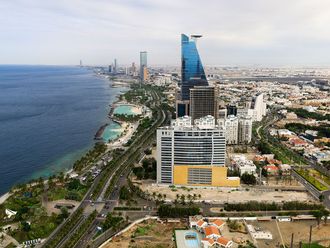Manila: Four decades after late president Ferdinand Marcos drastically changed the course of the country’s history by declaring martial law, a media personality has admitted that he wasn’t a victim of the dictator’s excesses afterall.
During his Friday morning radio programme Umagang Kay Ganda (A Beautiful Morning), Ariel Ureta surprised many listeners when he admitted that there was no truth to the story making rounds during the 1980s that he had been punished by Marcos for making a joke on air about the then government’s slogan.
According to the narrative, Marcos was so incensed that Ureta poked fun on the administration slogan ‘Sa Ikauunlad ng Bayan, Disiplina ang Kailangan’ (Discipline is necessary for the country’s progress) by changing the words instead to: ‘Sa Ikauunlad ng Bayan, Bisikleta ang Kailangan’ (For the nation’s progress bicycles are necessary).
According to the story, Ureta was forced by Marcos’ henchmen to go around in circles on a bicycle inside Camp Emilio Aquinaldo in suburban Quezon City to the point of exhaustion.
Ureta now say there was no truth to the story. He added that during the martial law period, it was customary for the media to air the reminder ‘Sa Ikauunlad ng Bayan, Disiplina ang Kailangan’, every 10 minutes or so.
The reminder got on people’s nerves and to lighten things up, they took the periodic airing of the slogan as a joke.
“The story about this bicycle thing all started when someone in the studio heard a boy changing the words of the government slogan. It caught on with the other people and before we know it, the whole matter became a private joke,” Ureta said.
Ureta said that the story on him being abducted and forced to ride a bicycle inside Camp Aguinaldo was all an urban legend.
“During that time, mere rumour-mongering could land you in detention,” he said while joking that he was’t picked up by authorities because he was “cute”.
“I wasn’t forced to ride a bicycle,” he said.
Struggle continues
Marcos declared Martial Law on September 21, 1972 following months of political upheaval that saw the communist mass movement gaining ground against the Marcos government.
To assert control, the then president curtailed civil liberties, muzzled the press, detained several activist, legislators and civilian leaders. Strategic industries were nationalised.
While some said that the imposition of military rule had initially been good for the country, the Philippines eventually spiralled to a decline as the Marcos administration became increasingly oppressive and corrupt. Human rights were violated for the government to maintain control.
In February 1986, the militarist Marcos administration was ousted and a civilan leader, Corazon Aquino was brought to power.
The current crop of activists said that 40 years after the imposition of Martial Law, the Philippines remained back where it started from.
“Impunity persists, legacy of the Filipino people’s valiant struggle continues. It may not be as visible as it was 40 years ago but, human rights violations that are indelible marks of Ferdinand Marcos’ Martial Law, continue to this day: illegal arrests and detention, torture, disappearance, extrajudicial killings, bombings and hamletting of communities, forced evacuation, use and proliferation of paramilitary groups, among others,” according to human rights group Karapatan.












